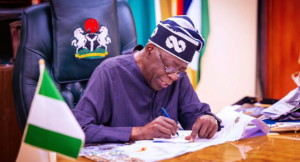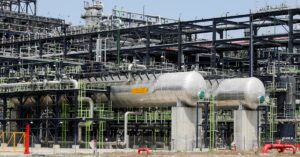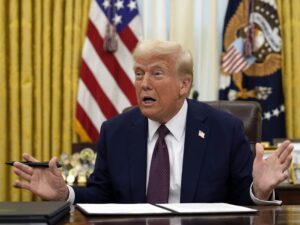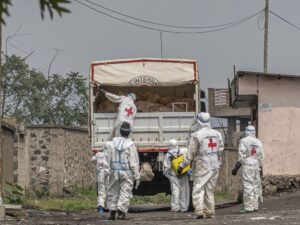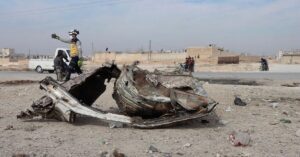Embattled President Robert Mugabe of Zimbabwe is set to meet army chiefs on Sunday in a second similar meeting this week.
According to ZTV, the state TV, citing Catholic priest Fidelis Mukonori, who has been mediating the negotiations, announced the proposed meeting on Saturday.
On the same day, the ruling Zimbabwe African National Union – Patriotic Front (ZANU–PF) party will meet to dismiss Mugabe as its leader.
The party is also expected to reinstate ousted Vice President Emmerson Mnangagwa, who has been backed by the army, as the deputy head of the party.
The party is also allegedly going to remove Grace Mugabe as the head of Women’s League.
Earlier media reports suggested that the ZANU-PF party that has called on Mugabe to resign amid the political crisis plans to convene an extraordinary meeting of its central committee to discuss the developments in the country within 48 hours.
The development comes amid the so-called “Solidarity March” in Harare, with up to 5,000 people participating in the rally supporting the Zimbabwe army and calling on Mugabe to resign.
According to earlier media reports, Mnangagwa, the vice president and likely successor who had been sacked by Mugabe, returned to the country to head the government.
Mugabe allegedly refused to step down at talks with the army commander.
Previously, an opposition leader called on Mugabe to resign, saying that his removal from power would be in the interest of Zimbabwe’s residents, while the president reportedly insisting that he remains the legitimate head of state and demanding guarantees of immunity should he step down.
Earlier this week, the ruling party in Zimbabwe has announced that the country was in a “bloodless transition” of power from 93-year-old Robert Mugabe.
He had been heavily guarded by the military and preparing to announce his resignation.
The military, however, said in a televised statement on Wednesday that there was no “military takeover of government” underway and that the president was “safe and sound.”
The tense situation in Zimbabwe has prompted concern in regional states, with the African Union stating that the crisis “seems like a coup,” and South African President Jacob Zuma sending envoys for talks with Mugabe

